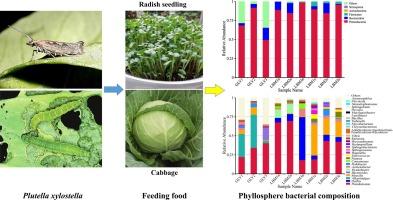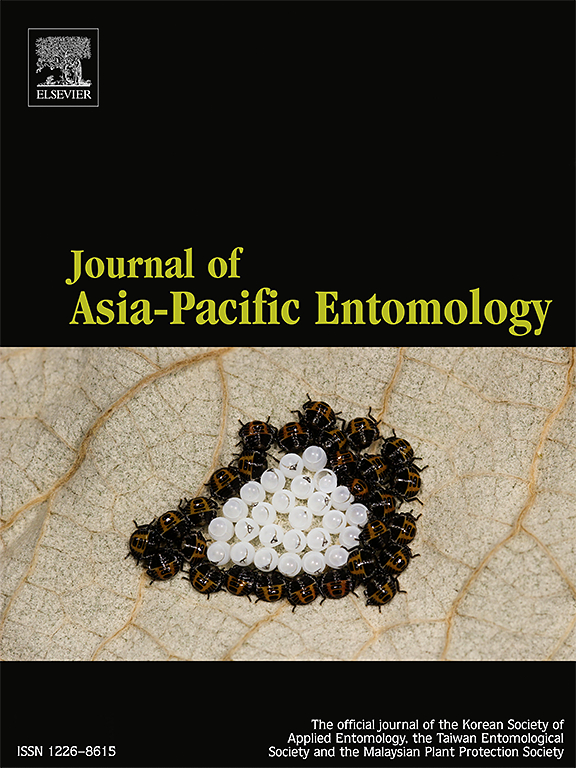Phyllosphere bacterial composition from Brassica oleracea and Raphanus sativus, the feeding food for Plutella xylostella
Abstract
The diamondback moth (DBM) is involved in great amount of predominant gut bacterium Enterococcus mundtii. Radish seedlings and cabbage leaves are natural suitable foods to feed the pest in laboratory. Leaf microbiome could be reshaped by insect herbivory. In this study, phyllosphere bacterial composition on radish seedlings with and without DBM herbivory in the chamber, and on cabbage leaves in the field with no DBM herbivory were investigated by high-throughput sequencing technology. Results showed that Proteobacteria and Bacteroidota were two common predominant phyla for both radish seedlings and cabbage leaves, while Firmicutes was only detected in phyllosphere of radish seedlings. Pseudomonas was the only common shared phyllosphere genus; Alkanindiges and Delftia were the unique dominant bacterial genera in cabbage and in radish, respectively. More bacterial varieties and higher bacterial community diversity was also found in cabbages leaves than that of radish seedlings. The bacterial community diversity and richness in radish seedlings fed by DBM was higher than that of not fed. Gut bacterium Enterococcus was only found on radish seedlings leaves that fed by DBM, while neither in radish seedlings nor in cabbage leaves not fed by the pest. As one survey in origin of predominant gut bacterium Enterococcus from DBM, this study offers new insights into the phyllosphere bacterial composition and diversity from the feeding food of DBM in field cabbage leaves and in laboratory radish seedlings.


 求助内容:
求助内容: 应助结果提醒方式:
应助结果提醒方式:


